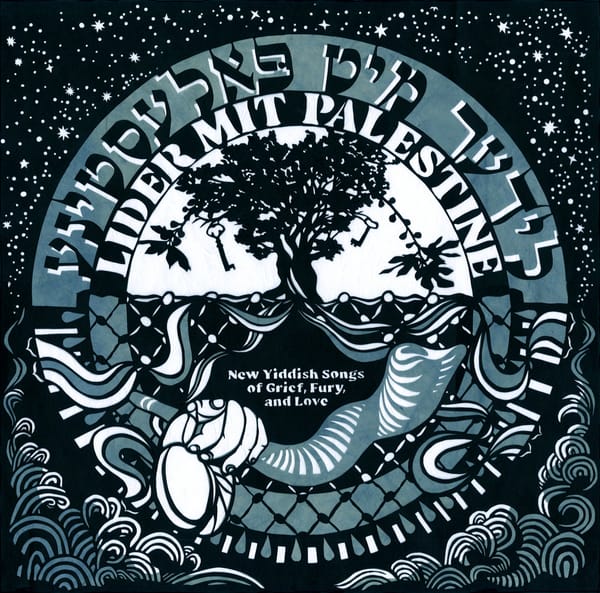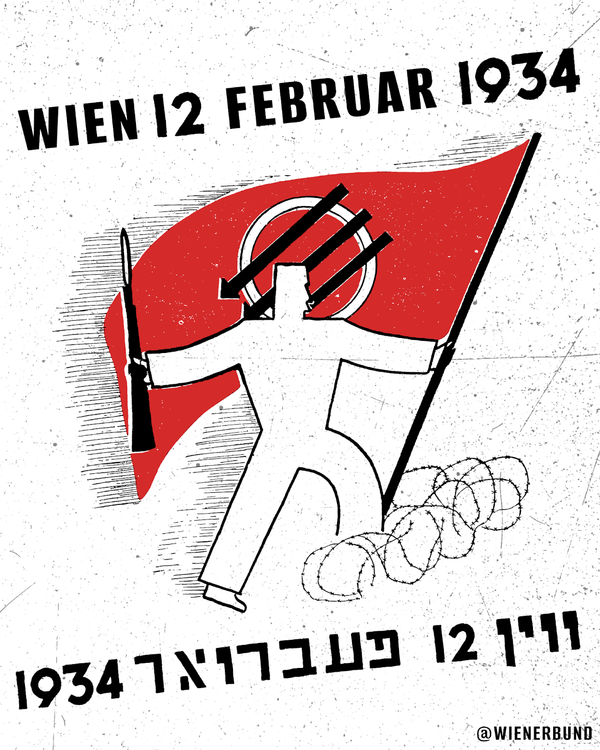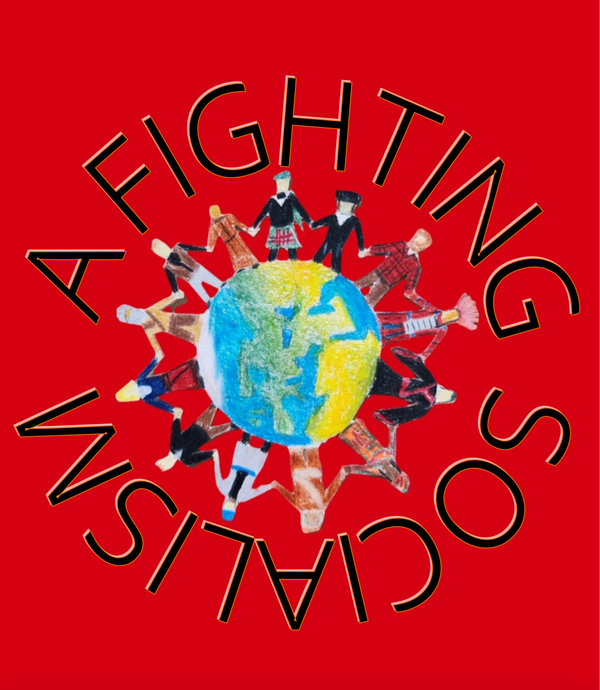Free DC, Free Palestine: Finding Hope Against All Odds
I am writing this to break the dam of unknowing and unseeing, to paint a “big picture” for those still clinging to their ignorance. There is, in fact, a horizon.
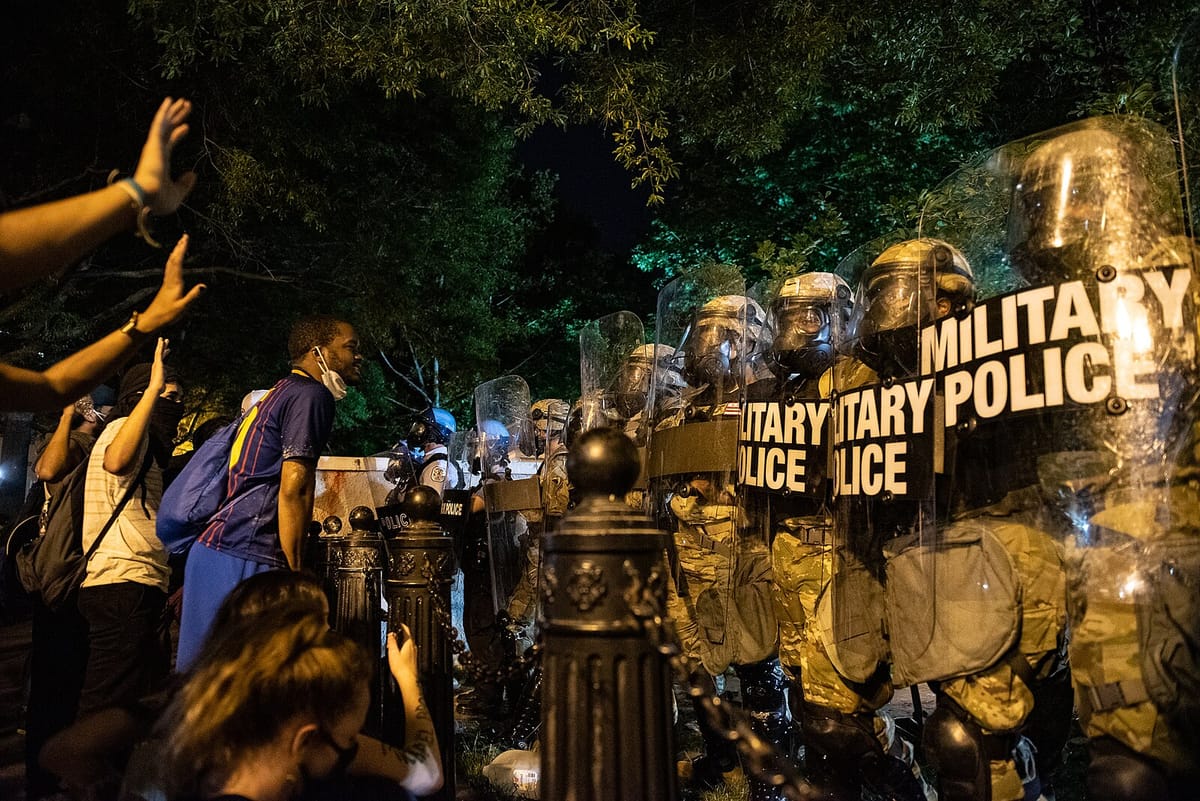
Just over 24 years ago, Al-Qaeda militants launched an attack on the twin towers of the World Trade Center in New York City, along with the Pentagon in Washington, DC. On September 11, 2001, I was about a week shy of four years old. Years later, my parents would describe to me their fear as they picked me up from my Jewish preschool in Cleveland Park almost as soon as they dropped me off that morning. I carry in my mind an imprint of us in the park that afternoon, listening to the radio. Military aircraft soared overhead. Meanwhile, halfway across the world, the Second Intifada was raging. The pundits on our television screens wasted no time in imposing their own connections, reifying that supposedly “sacred” relationship between the United States of America and the State of Israel. They kept on telling us, “Now we know how the Israelis feel.”
Fast forward to 2025, and I am visiting my hometown on Labor Day weekend. The streets are quieter than I remember them to be. Federal troopers are actively staging an escalated occupation of my city; ICE raids have increasingly targeted my Latino neighbors and are sent to harass residents in predominantly Black neighborhoods.
I say “escalated” because locals understand it to be a well-known fact that the Metropolitan Police Department (MPD) under Mayor Muriel E. Bowser has been operating with greater displays of force over the last three to five years; the American Civil Liberties Union of DC even noted in 2024 that instances of police abuse in the District have consistently increased over the last decade, causing significant harm and costing millions in taxpayer dollars. During the 2020 George Floyd Uprisings, in a disturbingly similar fashion to what we are seeing today, every government agency you could imagine converged in tandem with the MPD and National Guard units deployed from several Southern states, performing heavily armed patrols and arrests in outrageous displays of violence and intimidation (undoubtedly influenced in part by the department’s “Deadly Exchange” programs with Israeli armed forces).
In the lead-up to the 2020 presidential election and to the surprise of no one (those of us on the ground at least), white nationalist militias and their supporters descended upon our home. I’ll never forget how terrifying it was being chased downtown by a gang of them, screaming at me and howling into the night with their American flags in tow. The police postured as if they were keeping the peace — in reality, they were too busy tipping off the militiamen, letting them have their run of the town; the cops were more concerned with containing the anti-fascist groups organizing against the invaders.
That period, from the 2020 uprisings through the Capitol attack on January 6, was a rehearsal — easily what one could call a “Reichstag moment.” A lot of us saw what was coming. Biden's election victory meant little to us. The best he would do was to buy time in some areas and aggravate others (probably the biggest understatement of the decade). This was no fluke; it was further evidence of a system in decline. Many, even now, still might refuse to admit it to themselves; whether out of denial or approval, who knows?
What I do know is that I am writing this to break the dam of unknowing and unseeing, to paint a “big picture” for those still clinging to their ignorance. There is, in fact, a horizon. Today, in 2025, I can see so many more folks waking up, mobilizing to protect our communities, and doing their damnedest to make these bastards uncomfortable. In times like these, it’s what you have to do. The need for solidarity has never been more urgent. Against the backdrop of the US-Israeli genocide in Gaza and the deployment of federal troops erecting checkpoints and disappearing neighbors, there are new connections being made — people in the streets of the Nation’s Capital might be finally thinking to themselves: Maybe this is how the Palestinians feel?
…
The logical conclusion of the War on Terror was that the war was bound to come home. In the mid-20th century, writers like Aimé Cesaire and Hannah Arendt spoke of fascism’s ascendancy in Europe as a situation of chickens coming home to roost, otherwise illustrated as the “imperial boomerang.” European fascism and the horrors of the Nazi Holocaust were no aberration. Rather, it was a reflection of the exterminationist brutality forced upon non-white peoples through centuries of colonization from Namibia to Aotearoa (New Zealand). Its origins could be traced to early modern conceptualizations of race (limpieza de sangre, or “blood purity”) applied by the Spanish and Portuguese in their violent purges of Muslims and Jews in the 1400s.
As we know, this was expanded to justify the annihilation of indigenous nations in Abya Yala (the Americas) as well as the enslavement of African peoples in the centuries to come. Some scholars trace these ideas back even farther, to the earliest formation of “The West” (Christian unity modeled on the legacy of the Roman Empire, coupled with a pan-European idea) during the Crusades beginning in the 11th century. Overall, the essence of the West and its self-aggrandizing “civilization” was the very barbarity projected by its rulers in their vicious conquests, even as they insisted on labeling those they conquered as “savages.” Thus, the genocidal fates forced by the Nazis upon Jews, Roma, Slavs, queer people, and others were not entirely unique from a historical standpoint. It was an advancement of this “civilizing” barbarism resuming internally on the European continent.
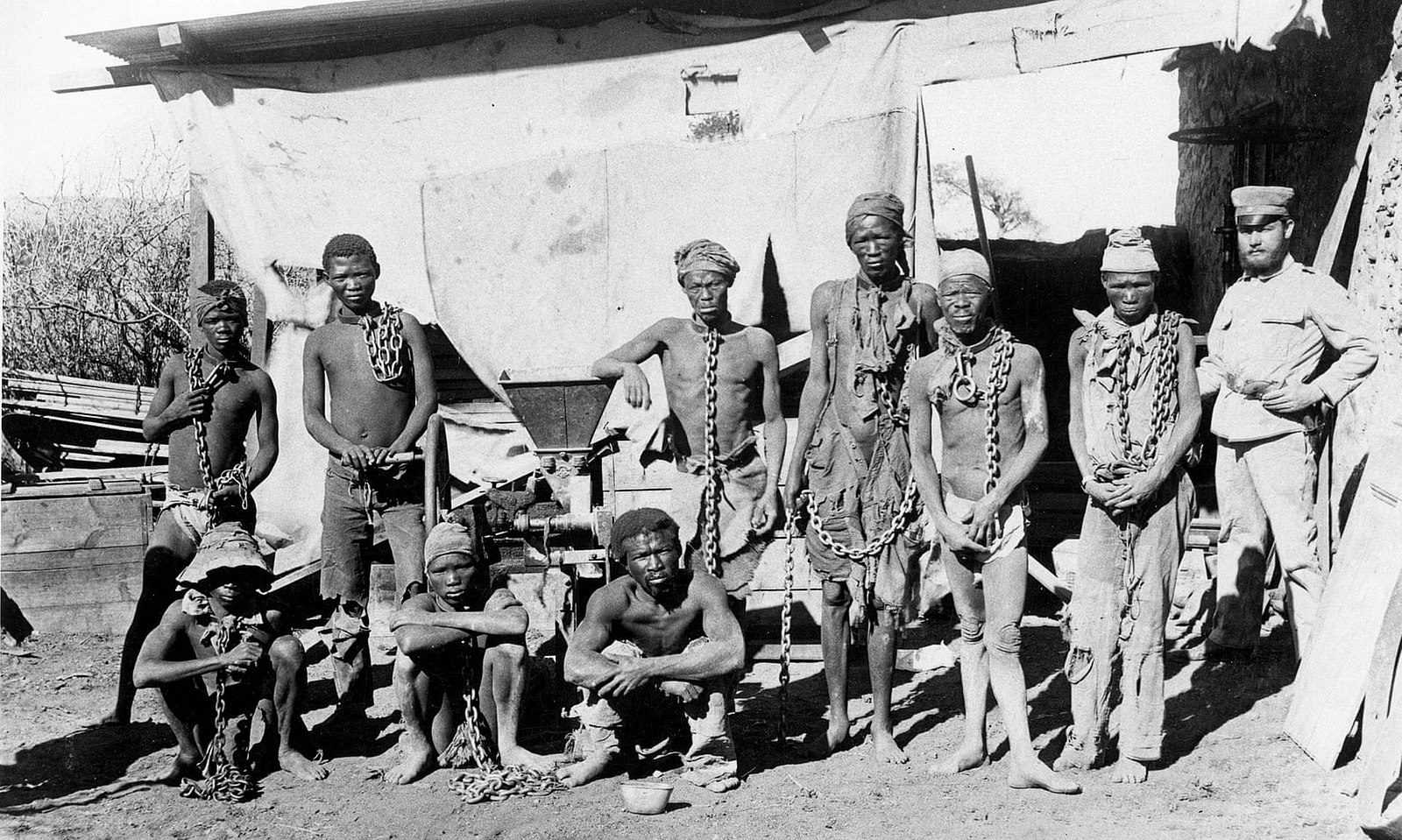
Additional precedents were set in the second half of the 20th century, as the age of empires supposedly ended. The post-WWII liberal order premised itself on a so-called “Cold War” (in truth, a Third World War) between the United States and the Soviet Union, which unleashed unprecedented levels of violence across the Global South. Since then, the US has fueled fascist counterinsurgencies around the globe in order to protect the cheap resource extraction and outsourced worker exploitation necessary for driving up corporate profit margins; land and labor function as two of the three main factors of production (the third being capital) required for generating maximum economic value. These devastating incursions were typically marketed to US voters by politicians as either a “War on Drugs” or “War on Terror” deemed necessary for ensuring “national security” and “protecting democracy.” Between the Congo and Chile, Vietnam to Iran, America has ruthlessly suppressed any mode of democratic, militant, or sovereign resistance that stands in its way.
This suppression has been historically performed with help from a complex international network of regional middlemen who are more than happy (driven by either dependency or opportunism) to make a killing from doing the dirty work of Western states. Political elites in countries like Israel, the United Arab Emirates, Rwanda, Saudi Arabia, El Salvador, and Argentina have all benefited from these cynical arrangements. After all, war and mass murder are good business. In Israel’s case, Benjamin Beit-Hallahmi’s 1987 book The Israeli Connection established how the country and its arms industry proved a valuable strategic asset during the Cold War, keeping in line with the sentiments of Zionist ideologue Theodor Herzl’s original sales pitch to British colonialists as it assisted the US in numerous covert operations around the world. The ruthless realities brought to life by its Occupation of Palestine enabled Israel to become a global model in hypermilitarized population control, selling “combat-tested” security services and surveillance tech to all manner of sordid regimes and liberal democracies hungry for new ways of repressing their own dissidents or halting immigration.
For a more contemporary analysis, one need look no further than Antony Loewenstein’s The Palestine Laboratory or the extensive report recently authored by United Nations Special Rapporteur Francesca Albanese, From Economy of Occupation to Economy of Genocide. The Tel Aviv Stock Exchange rose 213% since the start of the onslaught in Gaza in 2023; a new exposé from Amnesty International and a list compiled by the American Friends Service Committee further supports the findings of Loewenstein and Albanese, implicating major corporations in recent investments. Boeing, Lockheed Martin, Amazon, Palantir, Airbnb, and Hyundai, as well as Israeli weapons manufacturers Elbit Systems, Israel Aerospace Industries, and Rafael Advanced Defense Systems are but a few out of the dozens of companies identified.
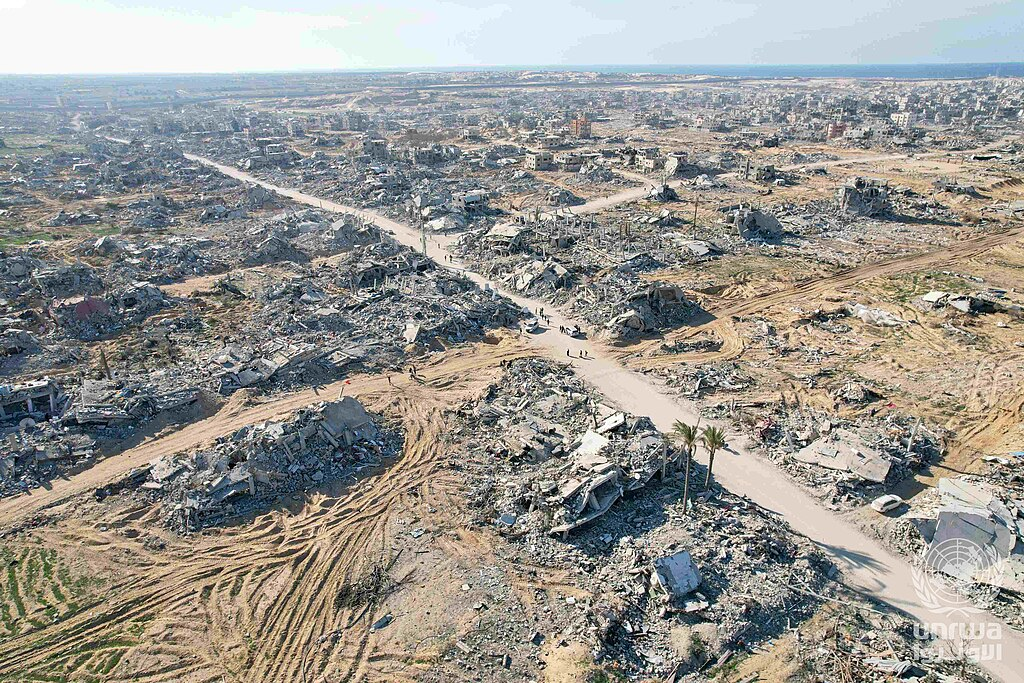
Israeli officials have made no effort to hide their ambitions to build a new gas field off the Gazan coastline and rake in up to $1.4 billion once they have annexed and ethnically cleansed the territory; plans were being hashed out well before the Hamas attacks of October 7. Israel’s government has already granted exploration licenses to companies like British Petroleum (eager for European alternatives to Russian energy amid the war with Ukraine) and Socar, based in Azerbaijan (another US ally conducting its own ethnic cleansing of Armenians). Additionally, the possibility of Saudi-Israeli normalization introduced by the Abraham Accords was supposed to help lay the groundwork for a potential economic corridor connecting India to the Middle East and Europe, enhancing the West’s edge against China. Israel bombed six other countries in the second week of September 2025. With its reliance on Western states in jeopardy and facing increased international isolation, Greater Israel is fully on the agenda, complete with visions of an autarkic “Super Sparta” buoyed by desires for a messianic nation stretching between the Euphrates and Nile rivers. This was never about “Jewish safety” — it is about fostering Jewish supremacy and fundamentalism in alignment with Western geopolitical interests.
Whenever a group or faction (represented in this situation by the Palestinian people) obstructs the expansion of capital by more powerful entities, the conclusion by the latter is that the former must be removed if they do not otherwise accommodate. This is the basic nature of imperialism, and precisely why figures like Vladimir Lenin expressed it as “the highest stage of capitalism.” The difference today is that the executives and directors of transnational corporations play a larger role in determining imperial objectives in a globalized economy than the leaders of individual nation-states. As Annelle Sheleine, a former US foreign affairs officer who resigned from the Biden administration in 2024, makes expertly clear in an article from April, the rights of other human beings are doomed to lose out in the competition over military primacy and corporate greed. It seems that unless you surrender to the powers that be, you and everything you know will be mercilessly destroyed; even if you do play along, you still might lose.
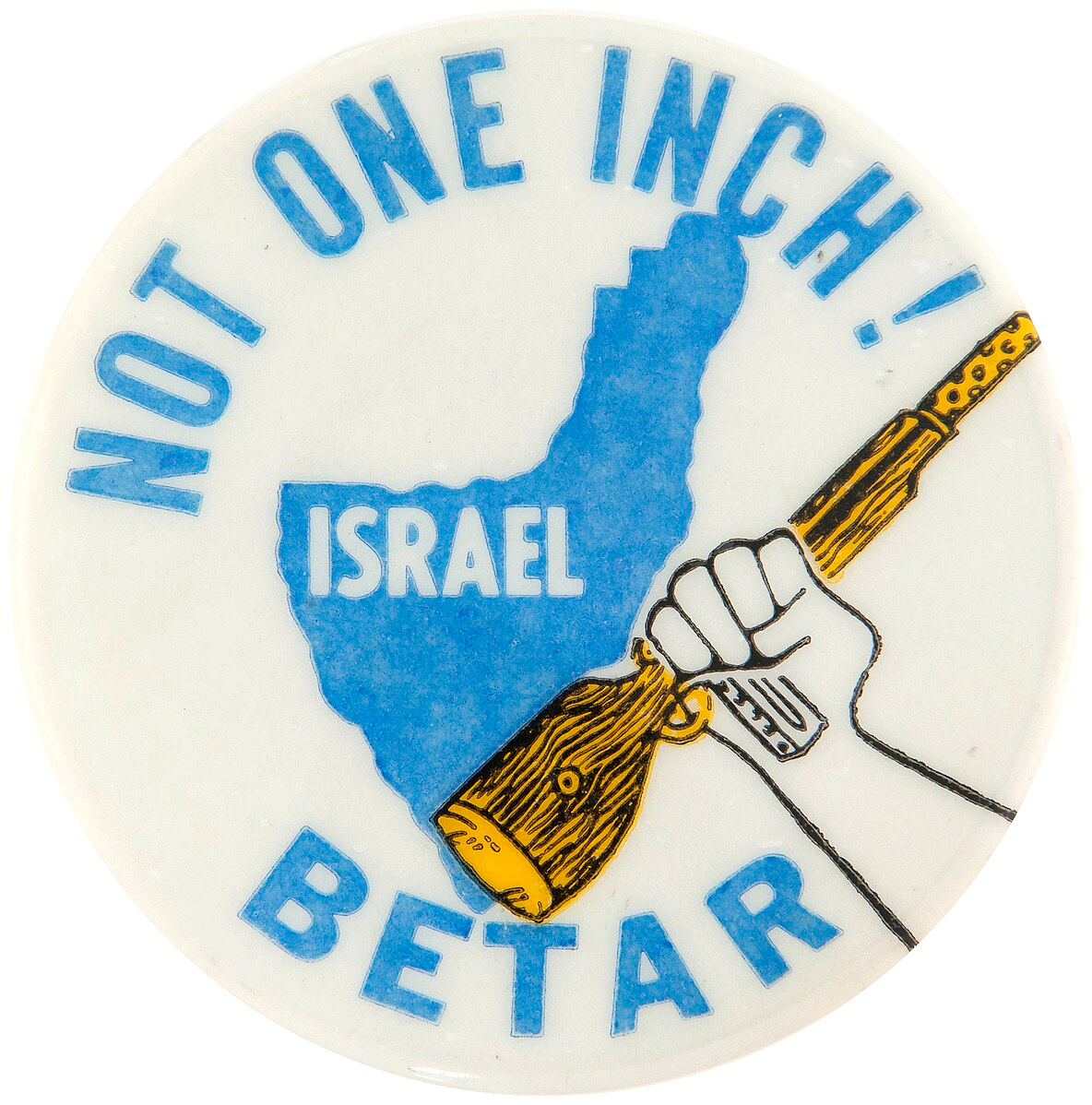
It has been well-documented that Israel’s training of American police officers has translated to repressive tactics used against protestors in this country, particularly in the aftermath of 9/11. I’ve witnessed aspects of this crossover personally, from the streets of DC to the hills of Occupied Palestine. That being said, America has hardly ever needed Israel to supply it with the means for state terror — this country has been a model of repression since its inception. Growing up in the District, democracy often seemed like a joke. The city was built on the scorched remains of Nacotchtank villages destroyed by the English; our limited political autonomy had a lot to do with members of Congress wanting to maintain the city as their personal plantation in order to curtail the voting rights of Black residents. Black Panther and political prisoner George Jackson was right back in 1971 when he said, writing from the bowels of San Quentin State Prison, that the United States of America had managed to achieve the most advanced form of fascism in the world; the country’s big cities were bound to become primary sites of confrontation with the state. A decade earlier, in 1960, Princeton University professor and political theorist Sheldon Wolin saw the country slipping into what he termed “inverted totalitarianism.” In his later work, Wolin utilized this concept in calling out the militarization imposed by the Bush II administration during the Iraq War and the feverish participation of Democratic Party leaders. Citizens had become passive consumers existing within a managed democracy. Their apathy was gradually conditioned by Fordist-Keynesian gains lurching towards neoliberal excess, not to mention the obsessive desires of the upper classes managing public opinion in their favor.
Across every single one of this country’s frustrated periods of socio-economic transformation, the masses could be distracted with crumbs in the form of diminishing class advancement and racial status, milquetoast cultural representation, or nationalist machismo. Meanwhile, evolutions in technology would give the primary locus of capitalistic influence a face-lift. Power would consolidate among a different sector of the elite, each dynamically building off of each other: from the agrarian slavers to the military-industrialists; from Big Finance to Big Tech. In his 2018 history of neoliberalism Globalists, Quinn Slobodian explains how a totality of capital, fundamentally anti-democratic and designed in boardrooms from Geneva to Chicago, has gradually encased our global economic structures, preventing them from ever being meaningfully influenced by standard electoral politics. Disaster capitalism, per Naomi Klein’s prescription in her 2007 book The Shock Doctrine, has become the standard. And, rather than truly severing themselves from “big government,” market actors seduce its protection via legalized bribery, recognizing that the power of legitimacy is conferred from successfully monopolizing the methods of organized violence. At the end of the day, who needs to pay for private mercenaries when the United States and its vassals are just the biggest gangs in town?
At the dawn of the 1990s, public intellectuals in the West hailed the collapse of the Soviet Union as the “End of History,” understood as the finality of ideological conflict and the ultimate victory of the free market over communism. Palestine’s renewed Nakba — and the concurrent apocalyptic violence taking place in Sudan, Congo, Tigray, and Haiti — collectively represent a “new” End of History. Western liberalism has lost all remaining credibility while capitalism collapses in on itself, giving way to what professor Jodi Dean describes in her book Capital’s Grave as neofeudal tendencies. Those of us in the Global North bicker over scraps in service-based (serf) economies. In the Global South however, we can see who is privileged enough to be understood as being fully “human”/“civilized” and who is not — that is to say, whose lives truly matter and whose do not. Countless people in the United States have been manipulated by centuries of compounded neo-Confederate, anti-communist, Christian nationalist, and Islamophobic propaganda; that so many feel inclined to engage in flagrant hand-wringing over the murders of healthcare executives, sheriff deputies, and prominent white supremacists rather than any of the aforementioned crises is evidence enough.
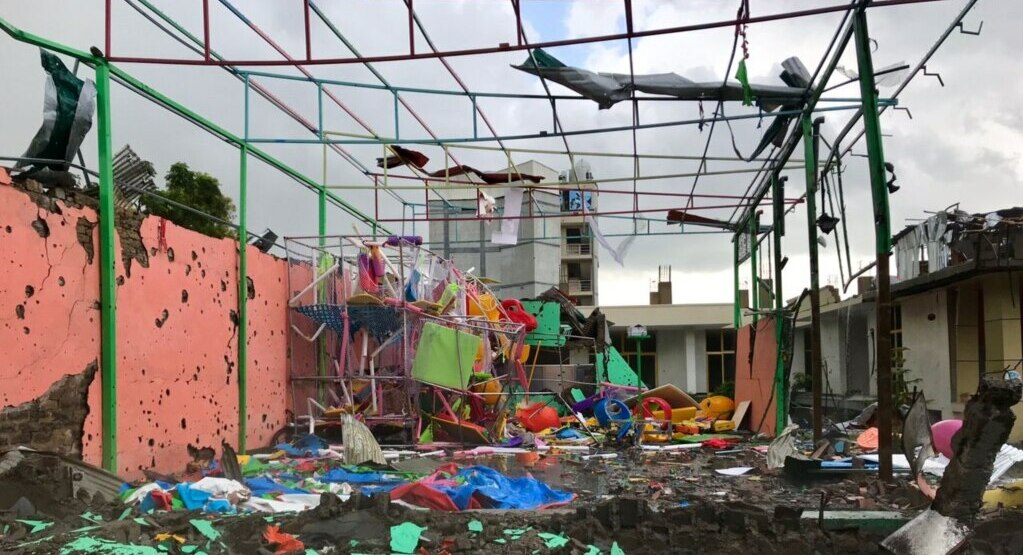
The reactions surrounding the assassination of Turning Point USA co-founder Charlie Kirk on September 10 is only the most recent emblem of this atrophy. Kirk, a man known for his extensive history of belligerently racist statements and contributing to stochastic terror targeting marginalized groups, was quickly memorialized as a free-speech icon in outlets like Bari Weiss’ The Free Press and by New York Times columnist Ezra Klein. Apparently, Klein believes Kirk was “doing politics the right way” and wrote in another column that he recognized “some commonality with [Kirk].” Clearly, he hadn’t bothered to read Jane Mayer. Mayer, author of Dark Money, already explained in a 2017 piece for The New Yorker how Kirk was no grassroots master of persuasion: TPUSA was astroturfed by a network of ultra-wealthy Christian fundamentalists and fossil-fuel billionaires seeking to indoctrinate impressionable young college students away from university divestment campaigns as well as to undermine “woke” humanities departments.
For Ezra Klein and other like-minded public intellectuals who are comfortably content with misdiagnosing the issues at hand, our politics would be better served by relinquishing many previously held moral standards. Their desired “big tent” ought to include or appease domestic bigots and war criminals so as to moderate the threat of ‘political violence.’ It doesn’t seem to matter to them that the US Department of Justice itself acknowledged years ago that the majority of extremist violence comes from white supremacists (conspicuously removed from government websites shortly after Kirk’s muder). On top of this, there is little recognition that the Democratic Party’s Third Way corporatism, walking a tightrope between fiscally conservative and socially liberal policies, has been a long-term disaster for the majority of Americans — to the benefit of oligarchs facilitating the resurgence of today’s far-Right. Still, for Klein and co., their proverbial tent is always big enough for expanding further to the Right, and never Left.
Part of that is because assigning any positive cultural value to certain historically marginalized identities (i.e. transgender, Black, Palestinian), will always be too “far-Left” for swaths of the US population who view them as inherently malicious or inferior. Meanwhile, anyone who even discursively challenges racial capitalist structures in the US and bipartisan support for Israel’s genocide in Gaza, or teases the slightest engagement with left-wing economic populism (as we can see in the frantic mainstream responses to Zohran Mamdani’s mayoral campaign) is considered beyond the pale of “serious” politics. The bottom line is that it’s all much too scary for party donors; capitalism is non-negotiable. Top business leaders and their spokespeople have made it clear many times before: if politics gets framed as a battle of capitalism versus democracy by the “radical Left,” then they’ll have no problem placing democracy on the chopping block and putting authoritarians in charge. As I’ve previously discussed, they’ve done it all over the world — why not try it here?
What couldn’t be more disingenuous about the current discourse is how pundits have reduced the concept of ‘political violence’ to the actions of Kirk’s assassin or figures like Luigi Mangione in spite of the fact, as political anthropologist Eric Reinhart lays out for readers in the Boston Review, that such violence is the water we all swim in, the air we all breathe. National mythologies underpin the justifications for that violence. When the myths embedded into our carefully groomed reverence of “law” and “order” are taken for granted, we excuse the far greater political violence conducted throughout the contours of our daily lives: homelessness, evictions, war, poverty, policing, food deserts, denial of healthcare, mass incarceration, ethnic cleansings and more. We are cowards when we reject confronting these myths undergirding the social order. We nurture courage when we carve out disruptive and generative counter-mythologies, modeled by those who’ve taken a stand in places like Zuccotti Park, Ferguson, and Standing Rock. It is a betrayal of humanity when we decide that the lives of vulnerable people are worth throwing under the bus for the sake of degraded political compromises. “Class first” leftists and even some anti-Zionists would do well to remember this too.
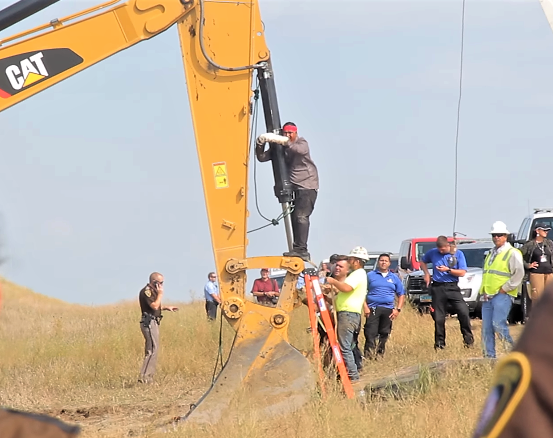
...
So, here we are. It’s the End of History and the old rules no longer apply. A bitter nihilism has settled in, spreading like a cancer with every slaughtered child seen in real time on our Instagram reels and Tik Tok feeds. More than a referendum on ideology, we find the very notion of human ideals challenged in a time when we need them most; trickle-down doomerism reigns. As the “adults in the room” throw up their hands, a generation of youth is put at risk of viewing truth and justice as something for suckers, discrimination as just a matter of common sense, and predatory grifting as their ticket to the top of the social hierarchy. Who can blame them when you can’t take your integrity to the bank? When being a good person grows too inconvenient? When that “critical thinking” shit could leave you looking like a fool or worse: blacklisted and broke, locked up and deported, or straight-up killed? When Holocaust museums — institutions enshrining the very cataclysm serving as the impetus for the existence of international law — have (per the analysis of genocide scholars like Raz Segal) become vanguards of a state project manufacturing consent for a different kind of holocaust, what hope can there possibly be for an ethical future? The grief often feels so acute, so grossly overwhelming, that we may instinctively look away, as if to fling the burden from the surface of our conscience. That does not in any way mean that these monstrously terrible things stop happening.
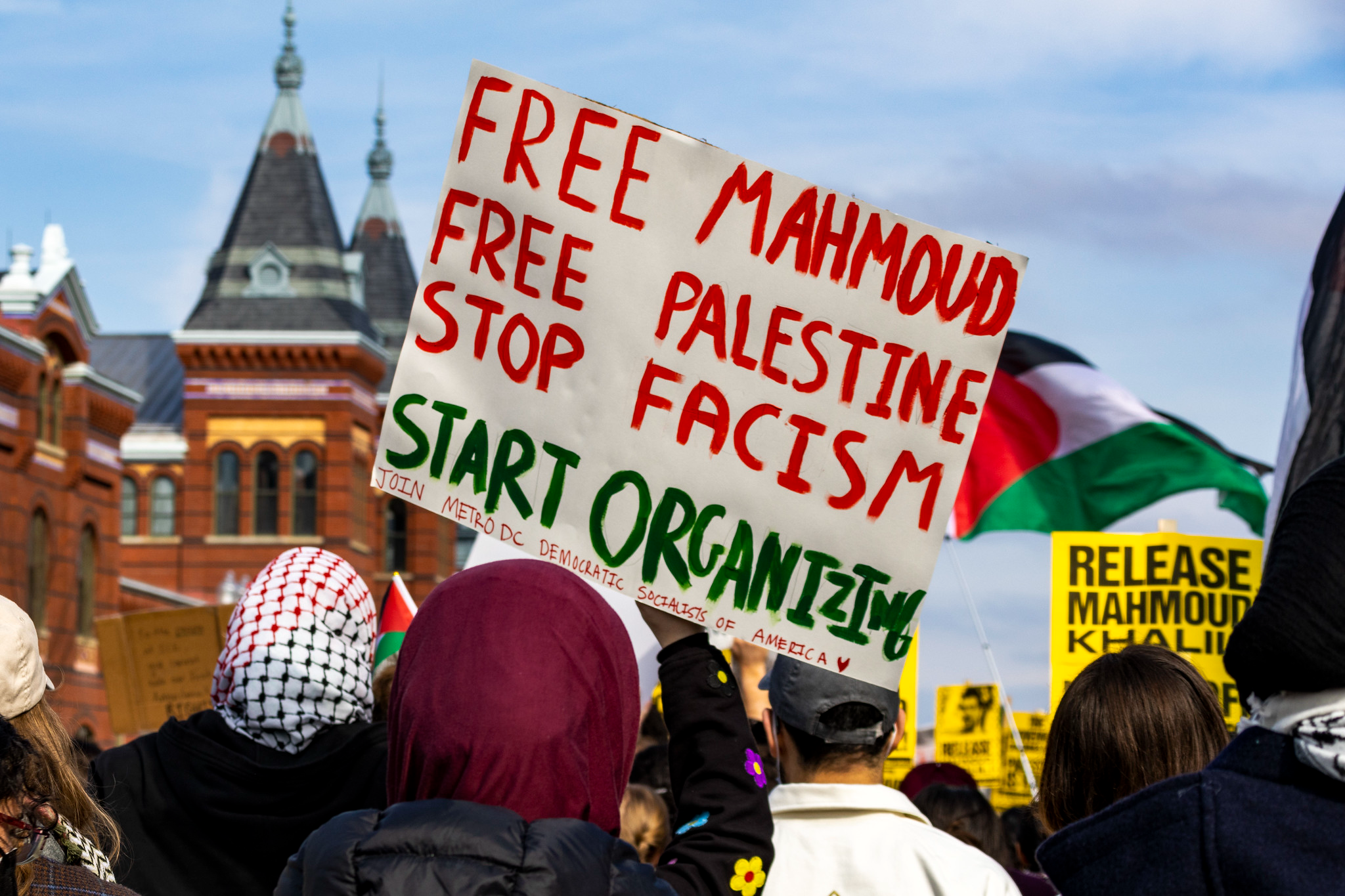
When the richest men on Earth and their lackeys tell us that the fundamental flaw in Western civilization is empathy, gleefully post messages like “fate loves irony,” or threaten to “flood the zone” as a method for overriding the will of the public, we must recognize it for the psycho-spiritual warfare that it is. It is precisely their flaunting of shameless sociopathy that is intended to demoralize us into acquiescence, to normalize the scale of their atrocities, and subsequently enlist us into their planet-killing schemes. By design, it is meant to disorient us into mass indifference. This is the essence of the “Dark Enlightenment” articulated in obscure online forums by pseudo-philosophers like Curtis Yarvin and Nick Land, now given credence by powerful individuals such as billionaire Paypal founder Peter Thiel as well as Vice President JD Vance.
Yet, a deep humanism continues to course through our popular culture. In Season 1 of the series Andor: A Star Wars Story, a young rebel named Nemik (played by Alex Lawther) describes the Galactic Empire’s logic of domination to the title character (played by Diego Luna) as they prepare to raid an Imperial weapons caché: “The pace of oppression strips us of the ability to understand it. And that’s the trick of the Imperial thought machine. It’s easier to hide behind forty atrocities than a single incident.” Nemik is killed during the team’s escape, but his tragic death plays a crucial role in influencing protagonist Cassian Andor’s eventual commitment to the burgeoning Rebel Alliance. To accept these tidal waves of subjugation and catastrophe as the predetermined inevitability of life, as anything “natural,” is effectively abdicating our responsibility to stop them. Because if that’s really true, why go on living or dare to bring others into such a world?
The late Palestinian intellectual Edward Said once declared, “Where cruelty and injustice are concerned, hopelessness is submission.” We must do everything possible to reject this sadistic reprogramming. What does it mean, then, to engage in genuine solidarity? To cultivate revolutionary discipline, especially in an age of petty comforts and instant gratification? How do we launch ourselves out of our negligence and complacency, from a necrosis of the spirit? We can start by looking upward and outward, against false hope.
From DC to Gaza, from Al-Fashir to Los Angeles, we see the spark: it is in the hearts of students who force open new fronts of struggle on campus. It sits inside the growling stomachs of political prisoners amid a hunger strike. It is held in the hands of street medics offering balms of healing to righteous strangers. It runs with the masses de-arresting precious comrades. It rides with the citizen saboteurs who fuck up the fortunes of arrogant arms dealers and tech giants. It swells within the minds of culture-shakers who dare to shape the narrative through the soulscaping technologies of their craft. It is illuminated by scholars who take heed of the martyr Walter Benjamin, seeking “to brush history against the grain.” It is bestowed upon us by the sacrifice of teachers like Awdah Hathaleen, who give their lives in defense of their communities. Militants of many radical traditions, ranging from Marek Edelman of the General Jewish Labor Bund to Georges Abdallah of the Lebanese Armed Revolutionary Factions have offered words of wisdom as guidance in times of struggle. But it is the late Assata Shakur of the Black Liberation Army who summed it up best for us: “It is our duty to fight for our freedom. It is our duty to win. We must love each other and support each other. We have nothing to lose but our chains.”
To my folks out there who are still wrapped in their refusals, who will not or cannot bring themselves to look toward the horizon ahead of us, I promise you: the grass is greener on the other side of fear. Silence is not neutrality — it is complicity. We know what the problem is. We know who our enemies are. There is no middle ground with evil. Now, you must pick a side. Start somewhere, whether it’s raising money for families that are suffering in Sudan, defending endangered abortion clinics, funding Palestinian-led protective presence initiatives in the West Bank, disrupting weapons manufacturers in your neighborhood, or joining a local ICE Watch group. There can be no more compartmentalization. If any of that is too much to ask, well, you are more than welcome to go enjoy brunch. I just hope you are as good at lying to your children or grandchildren as you are at lying to yourselves. They might forgive you for it some day.


